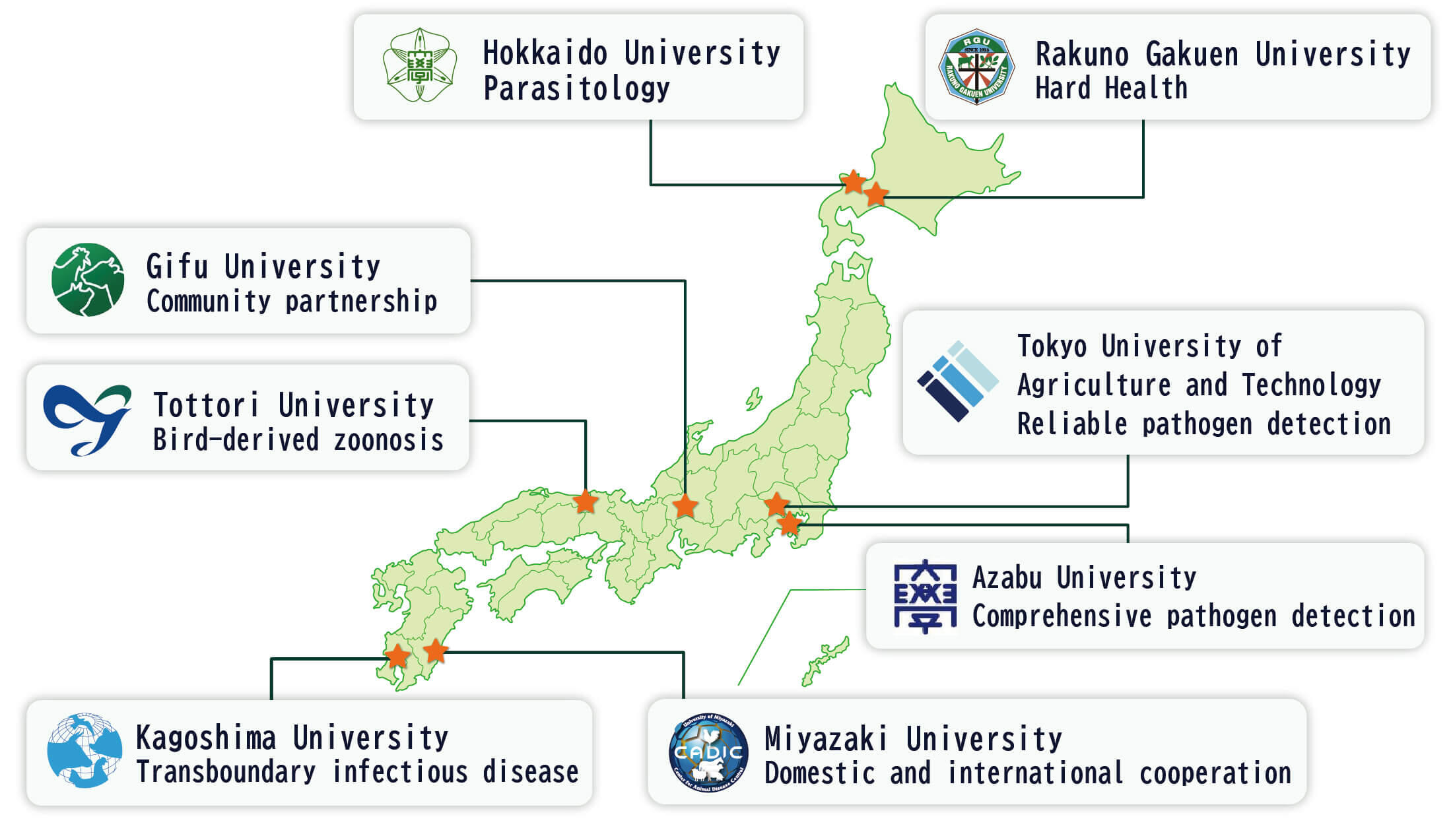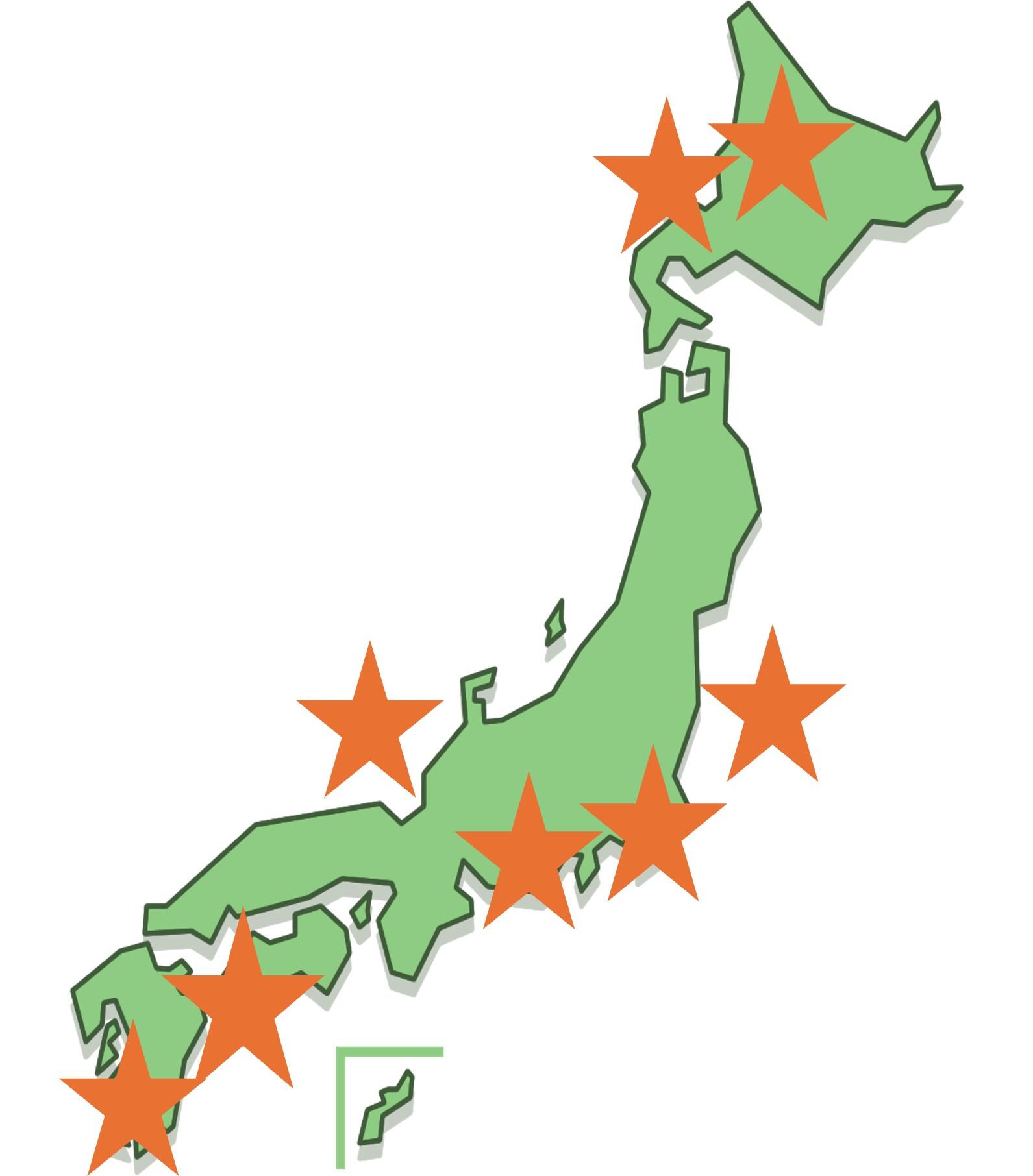In response to outbreaks of foot-and-mouth disease and highly pathogenic avian influenza, research institutes for livestock infectious diseases have been established at each veterinary university. In 2018, the University of Miyazaki took the lead in organizing the Livestock Epidemic Control Consortium with the aim of building a joint research and education system for important livestock infectious diseases. The consortium aims to develop novel technologies essential for livestock quarantine and research that contribute to sustainable livestock resources on an All-Japan basis.

| Feb. 2017. | Proposal for the establishment of an organic linkage building on the characteristics of the research center on livestock disease control in Tokyo-U of Agriculture and Technology, Tottori-U, U of Miyazaki and Kagoshima-U |
|---|---|
| Dec. 2018. | Consortium of four universities launched |
| Aug. 2019. | Participation of Hokkaido-U, Azabu-U, and Gifu-U. |
| Aug. 2020. | Participation of Rakuno Gakuen-U →Launched as 8-university consortium for livestock disease control |
Symposium for information sharing and dissemination
Educational activities: science camps/international student exchange programes



Establishment of an early alert system in 8-university consortium using the HPAI controls as a model.
To rapidly detect HPAI viruses carried by migratory birds, a method to detect HPAI viruses with high sensitivity from migratory bird flight lake water will be developed, and a nationwide HPAI detection network will be established in 8-university consortium.
Furthermore, in collaboration with local government and farmers a system will be established to immediately return correct information on disease control measures to livestock production sites, with the aim of realizing 'Disease control in advance' through the concerted efforts of industry, academia and government.
